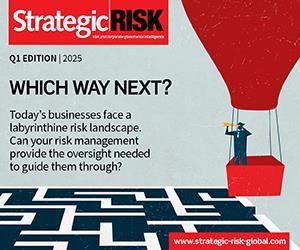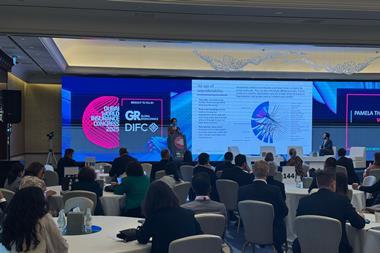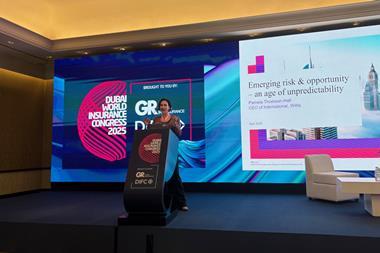Organisations that survive over time need two key attributes, writes Titus Tiel Groenestege, director risk & insurance at Pon

Cyber, nanotechnology, increasing political risk, increasing oil prices, decreasing oil prices, terrorism, interruptive technologies, interruptive business concepts, financial crisis, financial turmoil, Brexit – when discussing the future of risk management, these are the words that are often used.
But this article won’t be a summing up of future risks and it won’t be a short class in future risk management either. The only thing we know for sure is constant change. The history of mankind is a story of expected and unexpected changes, sometimes foreseen but in most cases unforeseeable.
The completely unexpected events are the ones that keep me awake at night. Events which everyone is discussing and which you can read reports on are the given facts. These are the risks that can be identified, analysed, controlled, financed and administrated. That is our main challenge as risk managers within the companies that employ us already.
But to withstand unexpected events, companies need two key attributes: relevancy and resilience.
Organisations that survive over time are the ones that stay relevant – relevant to and balancing the interests of all their stakeholders such as clients, employees and shareholders. These are also the companies that dare to ask themselves the question: ‘How relevant are we to all our stakeholders?’. All departments within an organisation should ask themselves the relevancy question, but I think this question is even more viable for risk managers.
Why don’t we start reinventing ourselves by asking the relevancy question? Supporting questions to consider are: What would happen if you weren’t working within your organisation? Is your role focused mainly on handling insurance policies and dealing with claims? Or do you want to be more involved in risk management processes? What is the maturity of risk management within your organisation? And does that fit the needs and the way your company is organised? What is normal today and what could be the new normal tomorrow? And what is on the mind of our board members?
Resilience has turned into a buzzword over the years, but is key for companies’ survival over time. Being resilient is the answer to all kinds of changes that can occur in your life, career or company. All unexpected events – good or bad – are changes and being able to (re)act upon changes and events is the key in securing organisations’ assets, continuity and future profitability.
So what does this all mean for risk management in the future? Given the fact of constant change, the future risk manager keeps questioning what is known, what is usual, what was predicted and what is the most unimaginable one could ever think of. That is my idea: ask the right questions and stay relevant! Every individual working in an organisation should be – to a certain extent – a risk manager.




















No comments yet